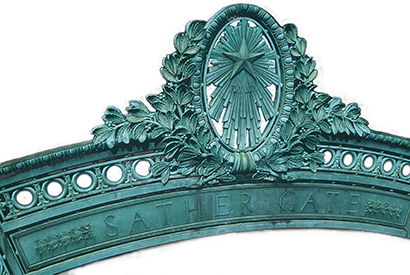Upholding Berkeley’s ‘principles of community’
A reminder from campus administrators to the university community that use of our common resources — our classrooms, labs, offices, and public spaces — is subject to rules aimed at upholding the Principles of Community.

November 2, 2012
The following message was sent to the campus community on Friday as a CalMessage:
Dear Faculty, Staff, and Students,
We write jointly to remind the university community that use of our common resources – our classrooms, labs, offices, and public spaces – is subject to rules aimed at upholding the Principles of Community. Rights of protest and demonstration are both protected and governed by rules of appropriate time, place, and manner, crafted collaboratively by faculty, students and administration, in accordance with First Amendment law. These rules will be enforced and we expect the full compliance of faculty, staff, and students.
The Campus Regulations Concerning the Time, Place, and Manner of Public Expression can be found online. We highlight the following sections:
311. The University has a special obligation to protect free inquiry and free expression. On University grounds open to the public generally, all persons may exercise the constitutionally protected rights of free expression, speech and assembly. Such activities must not, however, interfere with the right of the University to conduct its affairs in an orderly manner and to maintain its property, nor may they interfere with the University’s obligation to protect the rights of all to teach, study, and freely exchange ideas. These regulations purport to assure the right of free expression and advocacy on the Berkeley campus, to minimize conflict between the form of exercise of that right and the rights of others in the effective use of University facilities, and to minimize possible interference with the University’s responsibilities as an educational institution.
312. These regulations provide authorization for certain uses of University facilities, and establish procedures for such authorized uses. Such uses must conform to these regulations, Berkeley campus and University policies, and state and federal laws that may protect or regulate matters of public expression on the Berkeley campus.
321. All individuals on University property or in attendance at an official University function assume an obligation to conduct themselves in a manner compatible with the University’s responsibilities as an educational institution. This means that all persons are responsible for complying with applicable University and Berkeley campus policies, including but not limited to the listed prohibitions. No person on University property or at official University functions may:
(a). Block entrances to or otherwise interfere with the free flow of traffic into and out of campus buildings;
(b) Have unauthorized entry to, possession of, receipt of, or use of any University services; equipment; resources; or properties, including the University’s name, insignia, or seal;
(c). Engage in physical abuse including but not limited to sexual assault, sex offenses, and other physical assault; threats of violence; or other conduct that threatens the health or safety of any person;
(d). Obstruct or disrupt teaching, research, administration, disciplinary procedures, or other University activities;
(e). Engage in the production of amplified or non-amplified sound that disrupts campus activities;
(f). Exhibit disorderly or lewd conduct;
(g). Participate in a disturbance of the peace or unlawful assembly;
(j). Possess, use, store, or manufacture explosives, firebombs, or other destructive devices;
(k). Possess, use, store, or manufacture a firearm or other weapon;
(l). Engage in the theft of, conversion of, destruction of, or damage to any property of the University, or any property of others while on University premises, or possession of any property when the individual had knowledge or reasonably should have had knowledge that it was stolen;
(m). Fail to comply with the directions of a University official or other public official acting in the performance of his or her duties while on University property or at official University functions; or resisting or obstructing such University or other public officials in the performance of or the attempt to perform their duties;
(n). Camp or lodge on University property other than in authorized facilities;
(o). Cimb up or rappel down any tree, building, or structure on University property.
322. (a) The University House is primarily a personal residence and is not open to the public. The use of University House is limited to the residence of the Chancellor’s family and guests and the venue for periodic special University events hosted by the Chancellor. It is not open to the public, and is accessible by invitation only. The property is not a designated area for public expression. Rallies, demonstrations and other forms of public expression by members of the University community or the general public are not permitted at any time on the grounds of The University House. Given the nature of the University House as a residential home, any such assembly advocacy activity may not occur within 50 feet of the property boundaries between the hours of 10 pm and 7am daily.
331. The Sproul Plaza and Lower Sproul Plaza have traditionally been designated as areas for public expression. These areas are open to the public generally between the hours of 6:00 a.m. and 12:00 midnight. Between the hours of midnight and 6 a.m., these areas are generally closed to all activities except coming and going to a University building or crossing the campus. During open hours, Sproul Plaza and Lower Sproul Plaza may be used without reservation for discussion or public expression which does not require or involve sound amplification equipment. Space in both areas may be reserved through the Center for Student Leadership for use by recognized campus organizations or non-University groups in accordance with facility use regulations and established office procedures. However, use of these areas for discussion or public expression may be limited when such use interferes with the orderly conduct of University business or authorized events.
Thank you for attention to this and best wishes for a successful academic year.
Sincerely,
Harry Le Grande, Vice Chancellor, Student Affairs
Christina Maslach, Chair, Academic Senate
Andrew Szeri, Dean, Graduate Division